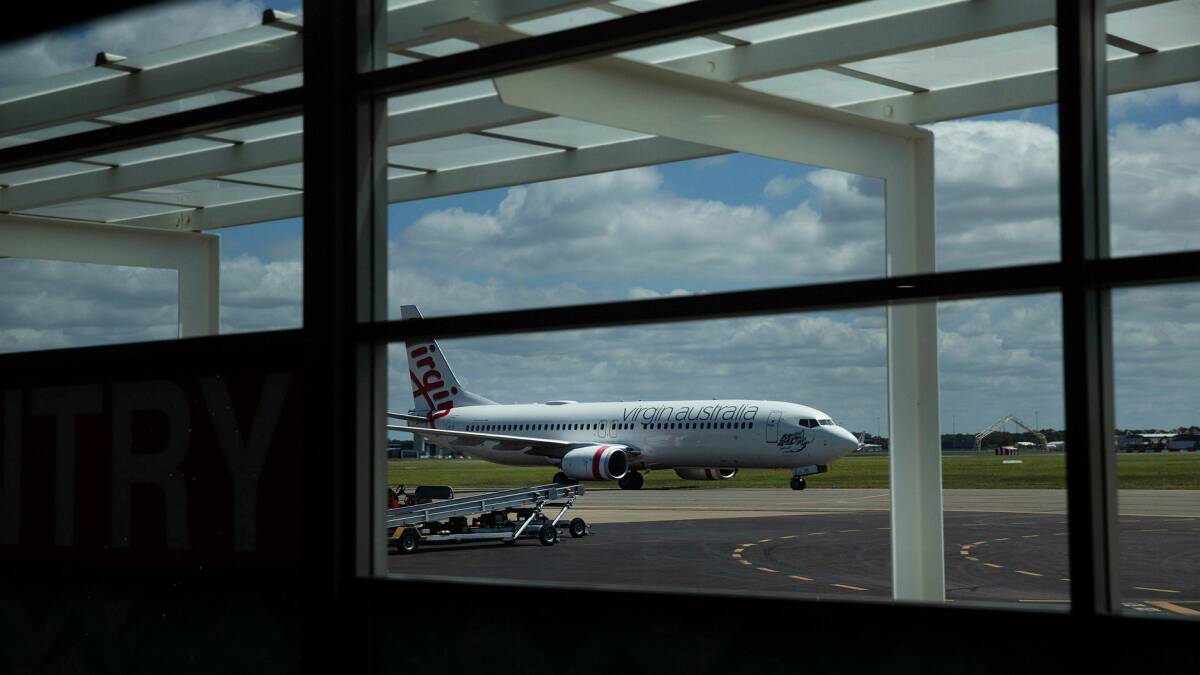
People stuck in Australia and overseas due to the pandemic experienced "high or very high levels of psychological distress" because they couldn't get home or back to their loved ones, new research led by Flinders University shows.
Subscribe now for unlimited access.
or signup to continue reading
The study, from South Australia's Orama Institute, surveyed nearly 4000 people living in and outside Australia. It found 83.6 per cent were negatively affected by the border closures.
International travel restrictions are set to ease even further after nearly two years of closures which left over 60,000 Australians stranded overseas.
Less than 500 Australians still remain stuck overseas waiting to return to Australia, according to the Department of Foreign Affairs and Trade.
Glen Simpson went to Vietnam for his wedding in March 2020 and decided to wait to return after the Australian government asked those who could to remain in place to allow vulnerable Aussies to return.
After months of waiting, the price of flights and quarantine became too high to return and his wife's Australian visa expired.
He remains in Vietnam while his wife's visa application is processed, away from his teenage son and his mother, who was diagnosed with cancer in November 2020.
"We tossed up if we should just pay the money to return, however, mum suggested we didn't," he said.
But the wait was too long: "Mum passed away last week."
He hopes to return after borders fully open but said he "pretty much gave up hope of getting back".
"Up until probably two weeks ago, it was very difficult to get back in," he said.
The study, co-authored by the South Australian Health and Medical Research Institute (SAHMRI) Wellbeing and Resilience Centre, found that stories of distress like Mr Simpson's weren't uncommon.
"The vast majority of participants reported being negatively affected by the restrictions and showed high or very high levels of psychological distress," Flinders University researcher Dr Kathina Ali said.
"Our findings indicate that respondents are similarly affected, whether they were in Australia or overseas."
Participants reported a variety of reasons for their mental health deteriorating, including:
- wanting to be with partners, family and friends (81.1 per cent)
- economic or employment reasons (4.9 per cent)
- study (4.1 per cent)
- personal safety or health (2.6 per cent)
- holiday (1.4 per cent).
"A fifth of respondents believed they needed help for mental health problems. Health and mental health care providers should be aware of this crisis and provide appropriate support options and practical strategies to mitigate the risk of further deterioration," Dr Ali said.
IN OTHER NEWS:
Aussie Expats Coming Home founder LJ Ferrara said Australians stranded overseas experienced "complete uncertainty and confusion" and many developed "hyper-anxiety" over not being able to return home.
"The severity of the stress and the anxiety disorders it's caused is beyond [the] comprehension of most people," she said.
"It is interesting that a report has come out because the stress is ongoing," Ms Ferrara said.
"It's not short-term stress; people are going to have long-term implications from this."


